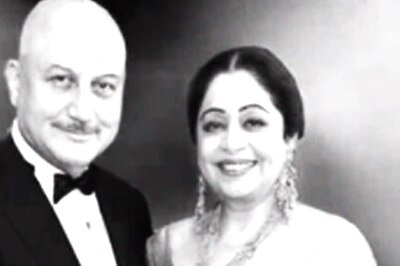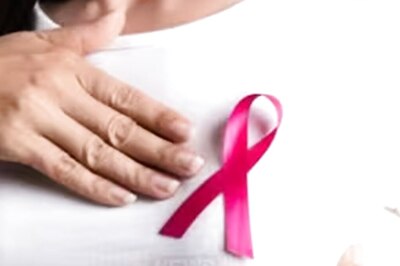
views
BEIJING: Russian media reported on Wednesday that 15-year-old figure skater Kamila Valieva had tested positive for a banned drug, after the ceremony to present her and her team mates with their Olympic gold medals was postponed for unexplained legal reasons.
Newspapers RBC and Kommersant named the drug as Trimetazidine, which is used to treat angina.
The news broke late at night in Beijing, where Valieva was part of the Russian Olympic Committee (ROC) ensemble that won the figure skating team event on Monday ahead of the United States and Japan.
Reuters attempted to reach the ROC chef de mission for comment but his phone was not answering. The ROC earlier declined to comment on reports that Valieva had returned a positive test.
Trimetazidine is listed on the World Anti-Doping Agency’s (WADA) list of metabolic modulators, and is banned in and out of competition.
Russian athletes are competing at the Beijing Games as representatives of ROC, without their flag and national anthem, because of sanctions against their country for previous doping violations.
Any move to penalise Valieva or strip the team of their medal would likely cause an outcry in Russia.
Prominent journalist Vasily Konov, deputy general producer at Russian sports channel Match-TV, said without citing sources that the sample in question had been taken two months ago.
“The drug trimetazidine does not help an athlete in any way. At all. It was found in one single sample in December. A minuscule amount. Nothing in her samples before or since,” he wrote on social media.
“There is no doping in the conventional sense. No! This cardiac drug has no impact on … performance. Now leave Kamila in peace.”
Former Russian pairs skater Tatiana Volosozhar, who won two gold medals at the 2014 Sochi Olympics, offered words of support for Valieva on Instagram, calling for the use of the Russian hashtag #Iwillneverbelieve to send the teenager support on social media.
Her post was “liked” on Instagram by Valieva herself.
Earlier, the International Olympic Committee said a need for “legal consultation” had forced the postponement of the medal ceremony for the figure skating team event in Beijing.
“You can bet your bottom dollar we are doing everything that this situation can be resolved as soon as possible. I cannot give you any more details but we will do our utmost,” IOC spokesperson Mark Adams said.
The IOC, International Skating Union and the international agency in charge of drugs testing during the Games all declined to comment on media reports that the delay was caused by a positive drug test.
The Russian Sports Ministry said it was premature to comment on media reports about the reason for the postponement.
Valieva delivered one of the highlights of the Beijing Games so far when she landed the first quadruple jumps by a woman in Olympic competition. She was one of four ROC skaters who did not appear at their practice sessions on Wednesday.
(Additional reporting by Maria Kiselyova and Vladimir Soldatkin, Writing by Mark Trevelyan; Editing by Christian Radnedge)
Disclaimer: This post has been auto-published from an agency feed without any modifications to the text and has not been reviewed by an editor
Read all the Latest News here




















Comments
0 comment